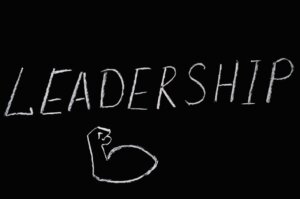A guest post by Terrence Seamon
I recently watched a documentary on TV about the finalists in the 2009 international Van Cliburn piano competition held every four years in Fort Worth, Texas. These young virtuosos were incredibly talented, the best pianists in the world from many countries including the U.S., Japan, Russia, China, Italy, South Korea, and Bulgaria. Extraordinarily competitive, hard-working, and driven to be the very best, these world-class musicians are top performers. And they thrive on performing, practicing, coaching, and feedback.
We have all known top performers. Some of us have even been top performers at one point or another. Top performers, such as the Van Cliburn pianists, your top salespeople, or a rising star with “hi-potential,” can benefit from coaching as much as anyone. Perhaps even more so if you look at the parallel to the world’s top athletes, e.g. Olympians. Every skier, skater, swimmer, and diver that competes in the Olympics has a coach and receives coaching. Although these athletes are the very best in their respective sports, they are driven to stay on top, enhance their performance, learn new things, and stay mentally tough and focused. So they “get” the value of coaching.
In business organizations, Managers are often at a loss as to how to coach these “stars,” especially those that seem arrogant and immune to influence and change. Yet those employees need coaching as much as anyone. The key is to understand them, especially their needs and drives. And apply such principles as:
Communicate and Connect – The only way to know what your top performer needs is to connect with her and open a channel of honest communication between you. Get to know the top performer. Learn about her goals. Ask how you can support her. Build trust.
Ask for their ideas – Top performers get to the top by consistently delivering superior results. They are also constantly improving what they do. Seek their ideas for improvement. When you are faced with a thorny problem that has no obvious solution, ask the top performer for their thoughts.
Utilize their capabilities – If there is one thing that top performers hate, it is to be under-utilized. Challenge them and push them. Keep raising the bar.
Show your appreciation – Do you want to retain your top performer? If so, let them know you appreciate them and the contribution they make to the team and to the organization.
Expose them to new – Top performers love to learn new ways, especially if they sense that the new approach will enable them to stay at the top in their field.
Recently on LinkedIn, someone asked: What do you do if a top performer is resistant to being coached? Should you simply get out of the top performer’s way? Should you “carry water” for them? Cater to them in order to keep them happy and prevent their jumping ship?
There is always a need for coaching, in my mind. But it’s vital to assess what the performer most needs. Without a clear and agreed-upon need, this star performer may just get irritated with you. And they may resist your coaching. Ask yourself: Could the behavior that seems to signal “resistance” be something else? Could it be impatience? Could it be arrogance? Maybe the performer is unconvinced that the coach has anything of value to offer.
Coming back to the Van Cliburn winners, the three medalists were selected from 12 finalists. As the documentary unfolded, the filmmakers gave us a profile of each competitor. While nearly all fit the profile outlined above, there were a couple who did not. Yes, they were incredibly talented and Olympian in stature on the world classical music stage. But they were full of themselves. They wouldn’t listen. They were resistant to coaching. And they lost.
For more resources, see the Library topic Personal and Professional Coaching.
 Sections of this topic
Sections of this topic
















